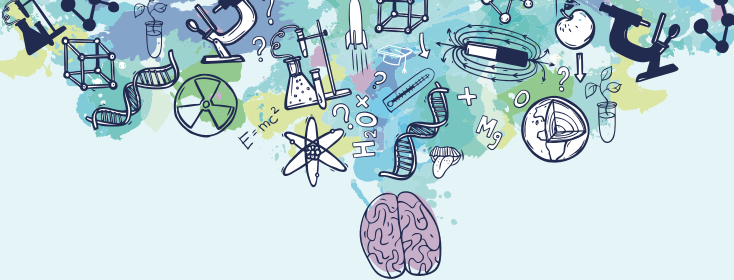How Nonscientific Advocates Can Understand Science
In addition to the obvious challenges facing those of us diagnosed with lung cancer, there’s another challenge that many of us are quite simply unprepared for: understanding science.
My struggle with science
I want to share my personal experience. I graduated with honors with an undergraduate degree in journalism. Then I received a full merit scholarship to attend graduate school. I earned a master’s degree in public policy journalism. I am not bragging. I am establishing a basis to make a confession. I am not stupid, and yet, I struggle with science. I started my undergraduate classes at a community or junior college. Journalism students study a wide variety of subjects but—other than writing courses—they are not very in-depth.
My program required I earn credits in a science course. I took biology and got a D in the class. That is the only college course in which I ever received such a low grade. When I transferred to a four-year university, my D did not transfer. I had to retake a science class. I have no idea how I got a B in that class unless the professor was being kind. I didn’t learn anything, though I truly tried.
Never too late to learn
Maybe you are not as challenged by science as I was. But I want to encourage you that, no matter how educated or smart (or not) you are, you can learn the necessary science, now that you have entered the realm of lung cancer.
Still, it is not easy for me, but I am able to serve as a patient advocate on several panels reviewing lung cancer research proposals. If I can do it, I think you can, too.
Discovering helpful tools
There are tools available to help you. This is one of my favorites. The Research Advocacy Network offers free training for advocates of all types of cancer. The nonprofit organization was founded in 2003 by advocates with a vision of educating, supporting and connecting patient advocates with the medical research community.
RAN offers free training through their Advocate Institute, an online learning portal. The goal of the organization is to develop a network of informed advocates and engaged researchers who advance cancer research–from initial concept to patient care delivery—through collaboration, education and mutual support. Serving both patient advocacy and research communities, RAN’s goal is improving care for all cancer patients.
The Basics for Research Advocacy online course is a self-paced, narrated course. Each of the three modules take 15-20 minutes to complete. Did I mention it’s free? Well, it’s worth mentioning again. For sessions on precision medicine, each of the five chapters of the Precision Medicine in Oncology online course takes 15-25 minutes to complete. Here are some helpful links to RAN's online opportunities:
Other tools and opportunitites
RAN not only educates and empower patient advocates, it brings researchers and advocates together. Below are some of RAN’s other programs and services:
- Partnership Models: Promote effective communication between the research and patient communities and deliver consulting services that foster partnerships between these groups. Understand specific needs and desires of both communities and focus on shared purposes of getting treatments to patients faster and more cost effectively.
- Networking: Connect trained advocates with research opportunities via AdvocateLink matching service; provide a communications center where advocates interact with one another and with researchers to share successes and solve problems.
- Measurement and Evaluation: Evaluate and assess the effectiveness of advocate activities in basic, translational and clinical research.
- Education: Educate and empower advocates with in-depth training through the Advocate Institute; provide news updates to advocates.
- Research Dissemination: Provide models and tools that accelerate the communication of research results to improve patient care.
I studied the RAN program a couple of years ago. Whether you want to understand your oncologist better, are considering entering a clinical trial or you want to be a cancer research advocate, take advantage of these free tools to help you become more effective. I believe in you!1
Community Poll
Have you taken our In America Survey yet?

Join the conversation